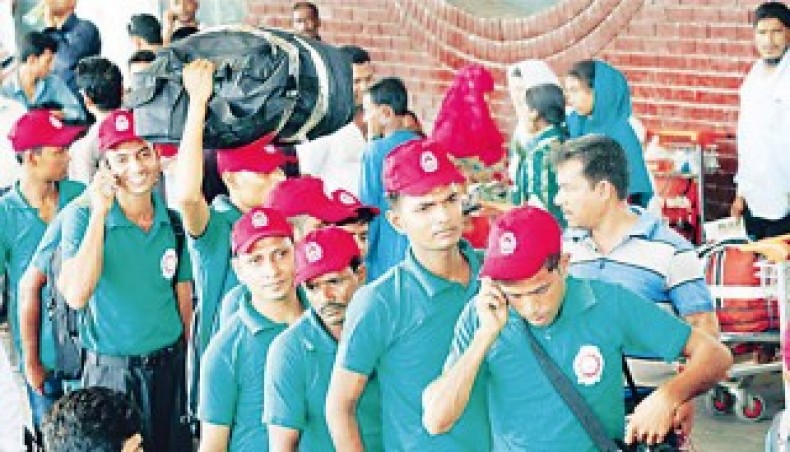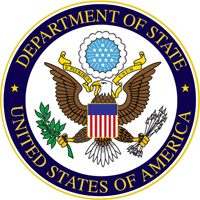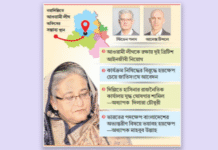
Labour migration from Bangladesh to Malaysia fell dramatically in the past months following Malaysia’s suspension of issuing electronic visas for aspiring migrants amid huge allegations of irregularities.
Malaysia kept hiring Bangladeshi workers suspended between September 2018 and August 2022 due to huge irregularities in the migration process on both sides.
A total of 422,240 Bangladeshis migrated to Malaysia until February when the market was reopened after four years.
The Southeast Asian country was the second top destination for Bangladeshi migrants after the Kingdom of Saudi Arabia in 2023.
Labour migration to Malaysia fell after January as the country suspended issuing electronic visas.
While 351,683 Bangladeshis migrated to Malaysia in 2023, only 20,467 people migrated in the past two months.
Only 1,278 people migrated in the first 12 days of March, according to Bureau of Manpower, Employment, and Training data.
Migration experts said that Malaysia had suspended issuing electronic visas as allegations of syndicated market manipulation resurfaced.
Calling visas issued by fake companies, syndicated market manipulation, and high migration costs resulted in forced labour, joblessness, and unpaid or underpaid workers after the market was reopened.
State minister for expatriates’ welfare and overseas employment, Shofiqur Rahman Choudhury, said that the government was working to solve the problems.
‘We are trying to identify problems and find solutions,’ he said, adding that the government targeted sending more workers, giving skilled workers a priority. In the Malaysian system, a calling visa is needed to secure a job and complete the process, while an electronic visa is needed to enter the country.
The calling visa or demand note is issued by companies, while the authorities issue electronic visa.
Bangladesh Association of International Recruiting Agencies former secretary general Shameem Ahmed Chowdhury Noman said that over 40,000 people still have the calling visas but could not fly due to not getting electronic visas.
Experts said that the number of people having calling visas would be no less than three lakh.
Migration rights activists and sector insiders estimated that some 100,000 Bangladeshi workers could not manage any jobs in Malaysia, while many others were engaged in forced labour and remained underpaid or unpaid.
Andy Hall, a migrant rights activist and researcher in Malaysia, said that many foreign workers from different countries were facing the same exploitation in Malaysia, but it was acute in the case of Bangladeshi workers.
He explained that migrant workers became forced labourers and sometimes trafficking victims.
He said that workers were confined to locked shelters, their passports were confiscated, they were not given meals, and their movement was prohibited.
Andy said that many fake companies issue calling visas even though they do not need workers. When workers finally come, they send them to other companies for low-paid jobs.
Mofazzel Hossain from Meherpur said that he paid over Tk four lakh as recruiting agency Musa International’s proprietor, Mohammad Musa Kalim, promised him to employ his son Taimur Zaman Nayan as a factory worker with a monthly pay of Tk 60,000.
‘When I talked to him last time, he wanted some money to buy food, but I did not know how to send the money,’ said Mofazzel, who filed a case against recruiter Musa and five others with the Gangni police station on February 27 seeking justice.
No one has been arrested so far in the case, according to the police.
Musa did not respond to phone calls or messages from New Age.
On February 26, Malaysia’s Home and Human Resource Ministry declared in a press statement that they had launched an investigation into the non-employment of 93 Bangladeshi workers in Cheras.
On March 8, Malaysian home minister Datuk Seri Saifuddin Nasution Ismail told The Star newspaper that foreign workers must enter the country by May 31.
He also asked valid employers to issue calling visa directly instead of through a syndicated server.
Shakirul Islam, chairman of the Ovibashi Karmi Unnayan Program, said that the aspirant migrants would bear the brunt of the sudden closure of the market, while recruiters, who already took money from aspirant migrants, would benefit.
‘Government agencies of both countries must bring the culprits to book,’ he said, adding that the Malaysian and Bangladeshi governments must ensure jobs for workers who are already there.
Officials at the expatriates’ welfare ministry said that they had already listed some recruiting agencies involved in unethical migration to Malaysia and restricted their activities.
new age









